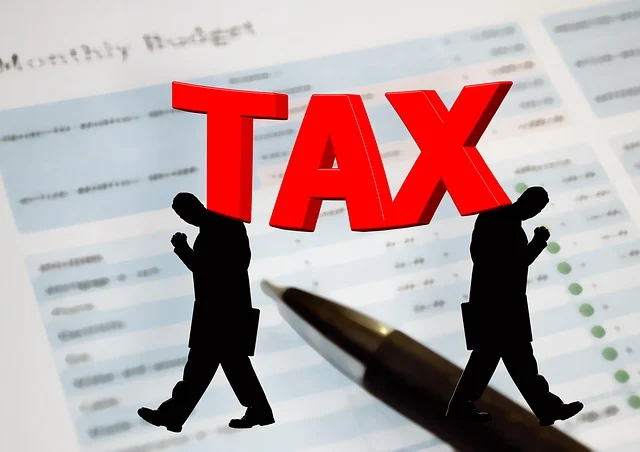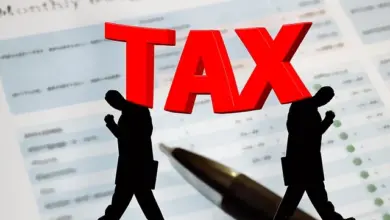How to File Taxes as an Expat in the Netherlands

Filing taxes as an expat in the Netherlands can seem complex due to the country’s detailed tax system and unique regulations. However, with proper preparation and understanding of the process, you can ensure compliance while taking advantage of potential benefits. Below is a comprehensive guide to help you navigate Dutch taxation as an expatriate.
1. Understanding Your Tax Residency Status
Before filing taxes, it’s crucial to determine whether you’re considered a tax resident of the Netherlands. This classification affects which income is taxable and under what rules.
A. Who is Considered a Dutch Tax Resident?
You are deemed a tax resident if:
- You have a permanent home in the Netherlands.
- You spend more than 183 days per year in the country (even if not consecutively).
- Your personal and economic ties are stronger to the Netherlands than any other country.
If none of these criteria apply, you may be classified as a non-resident for tax purposes, meaning only your Dutch-sourced income will be taxed.
2. Types of Income Subject to Taxation
As a tax resident, the Netherlands imposes taxes on your worldwide income , including:
- Employment income
- Self-employment earnings
- Rental income from properties worldwide
- Investment income (dividends, interest, capital gains)
- Pensions and retirement benefits
Non-residents are taxed only on their Dutch-sourced income , such as wages earned in the Netherlands or rental income from Dutch property.
3. Key Components of the Dutch Tax System
A. Box System
The Dutch tax system uses a “box system” to categorize different types of income:
- Box 1: Income from Work and Home Ownership
- Includes wages, pensions, business profits, and income from rental properties.
- Progressive tax rates range from 36.93% to 49.50% (as of 2023), depending on your total taxable income.
- Box 2: Income from Substantial Shareholdings
- Applies to dividends and capital gains from substantial shareholdings (5% or more ownership in a company).
- Taxed at a flat rate of 26.9% .
- Box 3: Savings and Investments
- Covers savings accounts, investments, and real estate not used for business purposes.
- A deemed return (fixed percentage of asset value) is taxed at 31% .
B. 30% Ruling
Expats recruited from abroad for highly skilled positions may qualify for the 30% ruling , a tax advantage that allows 30% of your salary to be paid tax-free for up to five years. To qualify:
- Your gross annual salary must exceed €39,467 (or €29,612 for those under 30 with a master’s degree).
- You must have specific expertise not readily available in the Dutch labor market.
This benefit effectively lowers your taxable income and makes the Netherlands an attractive destination for international professionals.
C. Social Contributions
In addition to income tax, you’ll pay social contributions, which fund healthcare, pensions, and unemployment insurance. These range from 7.5% to 17.2% , depending on the type of income.
4. Steps to File Taxes in the Netherlands
A. Register with the Dutch Tax Authorities
- Upon becoming a tax resident, register at your local tax office (Belastingdienst ).
- Obtain your BSN (Burgerservicenummer) , a citizen service number required for all administrative processes, including taxes.
B. Gather Required Documents
Collect documentation for all sources of income, including:
- W-2 forms or payslips (translated into Dutch if necessary)
- Bank statements showing interest or dividends
- Rental agreements and income reports
- Pension statements
- Proof of foreign taxes paid (if applicable)
C. Complete the Tax Return
- Use Form M Formulier for general income declaration.
- Attach supplementary forms for specific types of income:
- Form 3a: Foreign-source income
- Form 7a: Foreign bank accounts
- Form 9a: Real estate abroad
D. Submit Your Declaration
- File online via the official portal mijn.belastingdienst.nl . Deadlines vary but typically fall between April and May.
- Paper filings are allowed but discouraged; electronic submission ensures faster processing.
5. Double Taxation Treaties
To avoid being taxed twice on the same income, the Netherlands has double taxation treaties with many countries, including the U.S., UK, Canada, Australia, and others. These agreements determine which country has taxing rights over specific types of income.
How It Works
- If you’ve already paid taxes in your home country, the Netherlands may grant a credit or exemption for that amount.
- Provide proof of foreign taxes paid when filing your Dutch return.
For example:
- U.S. citizens must still file U.S. taxes annually, but they can claim the Foreign Earned Income Exclusion (FEIE) or Foreign Tax Credit (FTC) to reduce or eliminate U.S. liability.
6. Special Benefits for Expats
The Netherlands offers several incentives to attract skilled professionals and investors:
A. 30% Ruling
As mentioned earlier, this benefit significantly reduces taxable income for qualifying expats. It also exempts you from paying taxes on reimbursements for relocation expenses.
B. Exemptions for Relocation Expenses
Certain relocation costs, such as moving fees and temporary housing, may be deductible.
C. Reduced Capital Gains Tax
Expats may qualify for lower rates on the sale of shares or real estate acquired before moving to the Netherlands.
7. Common Mistakes to Avoid
- Late Filing : Missing deadlines can result in penalties and interest charges.
- Underreporting Income : Failure to declare all income, especially foreign earnings, can lead to audits and fines.
- Ignoring Social Contributions : Don’t overlook these mandatory payments, as they significantly impact your overall tax burden.
- Not Translating Documents : All foreign documents must be translated into Dutch by a certified translator.
8. Tips for Simplifying the Process
- Hire a Tax Advisor : A professional familiar with expat taxation can save time and ensure accuracy.
- Use Digital Tools : The Dutch tax website provides helpful calculators and resources.
- Stay Organized : Keep detailed records of income, deductions, and supporting documents throughout the year.
- Plan Ahead : Understand how Dutch taxes interact with those in your home country to optimize your financial strategy.


